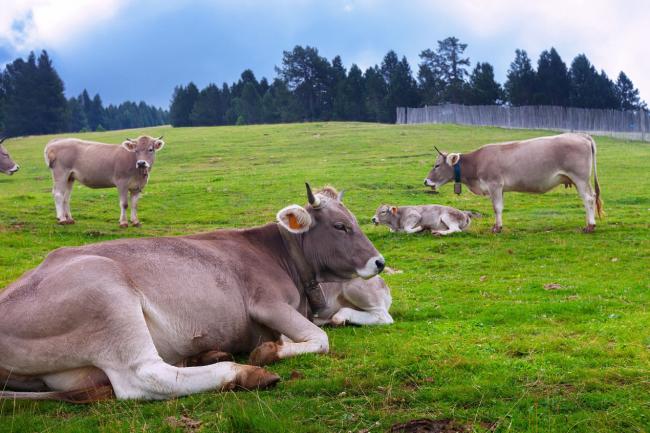Animal Welfare for Consumer Health. Zootechnical products treated with natural health devices

Parasitoses are a source of zoothenic risk, both for the decrease in production and for health, due to the possible incidence of pathologies related to them. The use of synthetic pesticides allows to limit these risks but involves serious problems of drug resistance, high economic costs and a high environmental impact. Specific phytocomplexes will be identified for parasites coming from plant species naturally present in the Mediterranean basin. The pastures will be oriented towards sustainable and integrated management, with the help of rotation shifts and choices of plant species that naturally lower the level of infection.
The plant material will undergo a fractional extraction process using classical techniques, or instrumental approaches. Secondary metabolites will be isolated from the extracts showing interesting biological activity through modern analytical technologies. Different types of phytoextracts will be prepared which will be tested in the CREMOPAR center on parasites of the gastrointestinal Strongili group present in 90 - 100% of sheep and goat farms.
The use of synthetic pesticides allows to limit these risks but involves serious problems of drug resistance, high economic costs and a high environmental impact. The management of parasitosis based on the use of sustainable and integrated practices, such as the rotation of pastures, and various environmental and management measures associated with the use of natural medicines. In animal husbandry that pursues models of environmental sustainability, "natural medicine" is included as a first choice health approach due to the absence of residues, the global approach to health and the deepening of animal-environment-human interactions. The integrated approach to the management of parasitosis involves maintaining the natural host-parasite balance, and rejects the view of the complete elimination of parasites in animals. On the one hand, this elimination is impossible, in breeding based on grazing, and on the other it has been shown that the presence of a low parasitic charge in the animal helps to limit the onset of massive infestations. Grazing is the main source of parasitic infestation of animals, therefore it is appropriate to limit the infesting load of pastures.
The BASC project intends to promote the use of plant extracts (phytocomplexes) as phytotherapy for zootechnical use. In this way, the project intends to offer companies in the regional sheep and goat sector a possible alternative to the synthetic drug, thus counteracting the environmental impacts that derive from it, reducing the drug-resistance of pathogens and parasites; reducing the impact of parasites on livestock farms valued in the order of 30-40% of gross salable production. Indicator: number of sheep and goat farms where phytotherapy treatments are adopted / number of total regional sheep and goat farms Identification of ecotypes and local varieties of fodder legumes for the improvement of regional pastures and agronomic characterization of the same especially in relation to climate change scenarios.
The ethnobotanical studies will be articulated through interviews with breeders, phytotherapic enthusiasts, specific flora and documents belonging to the popular tradition of an area will be consulted, producing a list of species. The tools used are updated analytical flora, binocular for the determination of species, floristic vacancies, cartographies, computers for database management and processing of a GIS. The plant material will undergo a fractional extraction process using classic techniques, such as maceration, or instrumental approaches (Naviglio extractor). Secondary metabolites will be isolated from the extracts showing interesting biological activity through modern analytical technologies. Different types of phytoextracts will be prepared and tested in the CREMOPAR center on parasites of the gastrointestinal Strongili (SGI) group present in 90 - 100% of sheep and goat farms.